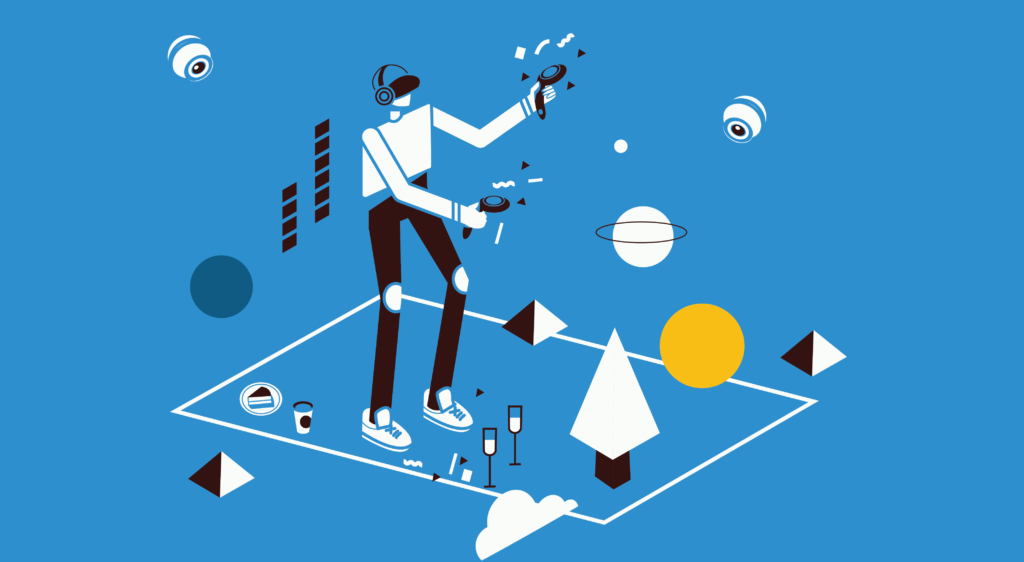We are happy to again announce a new master’s thesis collaboration. Julia Sand from Media Lab of the Aalto School of Arts is doing her thesis on virtual reality for learning. Here is how Julia describes her project:
“Virtual reality, or VR, technology has had significant breakthroughs in the past few years and some predict that it will be a ubiquitous part of education, work and entertainment in near future. The research field of virtual reality is in turmoil and new studies emerge fast. Understanding how educational content should be designed for VR is still in the process.
The unique qualities of VR support certain aspects of learning more than others. VR enables authentic interaction with objects and can simulate environments offering context for the subject matter to be learned. VR environments can also operate as a place to meet and collaborate. Virtual experiences are highly immersive and engaging creating strong memory traces and intrinsically motivating content. The environment enabling the media-rich representation of matters can be harnessed to instruct and tell stories in a compelling way from different perspectives.
In this project, information is presented in a virtual information space. The project explores and prototypes how to strategically harness the strengths of virtual reality for creating educational experience about complex issues of the modern world. Utilising the interactivity, virtually navigable environments and immersion this project extracts a multifaceted issue to many micro experiences telling about the same phenomena from different angles. The virtual information space enables shared experiences encouraging reflection, deep learning and further discussion.”
Would you like to help in the thesis project, for instance by helping to evaluate the final virtual reality product? Let us know!

